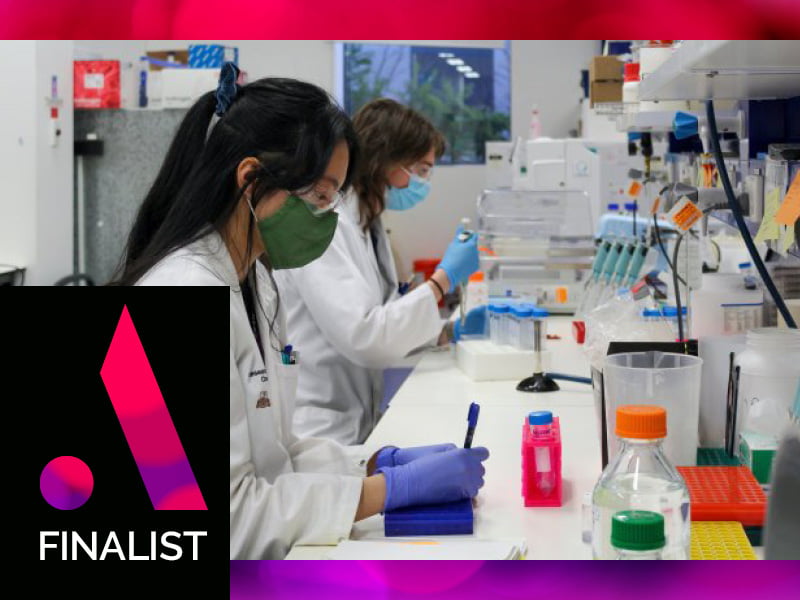A startup spun out of the Australian National University is looking to solve one of the world’s biggest environmental problems thanks to its plastic-eating enzyme that can make the material “infinitely recyclable”.
Samsara Eco was launched in September 2021 as a partnership between the ANU and CSIRO’s Main Sequence Ventures and aims to solve the planet’s plastic crisis through infinite recycling.
Samsara Eco has created super enzymes which can break waste plastic back down to its core molecules, no matter what shape or colour it is. These core plastic molecules can then be used by manufacturers to make brand new items.
The company is a finalist in the Energy and Renewables category of the InnovationAus Awards for Excellence 2022. The Awards will be presented at a Black-Tie gala at The Cutaway venue at Barangaroo in Sydney.

The Samsara Eco enzyme tech can serve to make plastic infinitely recyclable, the company’s founder and chief executive Paul Riley said.
“This means we will never have to create new plastic from scratch using fossil fuels again, and we can save plastic from our oceans and landfill to give it a new life in new products,” Mr Riley said.
“If we’re determined to solve the plastic crisis we need to start with where the problem lies, which is how it’s made and recycled. Samsara is a major breakthrough because we’re able to make plastic infinitely recyclable.”
The world is currently facing a plastics and recycling crisis. Based on current rates, the volume of plastic on the market will have doubled by 2040, and with that the volume of plastic pollution in our oceans will almost triple. Estimates have shown that just one 500ml plastic bottle has a total carbon footprint that is equal to 82.8 grams of carbon dioxide.
By 2050, it’s estimated that there will be more plastic than fish in the ocean going by weight, with 8 million tonnes of plastic going into the ocean annually.
And out of the 2.5 million tonnes of plastic waste generated by Australians alone each year, just 9 per cent will be recycled, with 84 per cent ending up in landfills.
This is where Samsara Eco comes into the picture. The company’s technology, developed in conjunction with the ANU, depolymerised plastic waste and allows for its reuse in the production of food-grade plastics which have the same characteristics as new plastic.
This process is particularly useful in recycling heterogeneous mixes of hard to recycle plastics like colour, multi-layered and mixed plastics, breaking these down to their original building blocks which can be used in new products.
Compared with traditional recycling, which uses physical methods to shred and melt plastics together for reuse, Samsara Eco chemically breaks down plastics to be used in any product, which is a more economical process with a lower carbon footprint.
Samsara Eco landed a grant from the Advanced Manufacturing Growth Centre’s Commercialisation Fund to foster this new process, and closed a $6 million funding round earlier this year, led by the Clean Energy Finance Corporation along with Woolworth’s venture capital and growth fund and Main Sequence Ventures.
This funding will go towards the establishment of a local recycling plant in either Sydney or Melbourne, with construction to start this year. Once full-scale production is up and running next year, more than 20,000 tonnes of plastic will be processed per year.
The company has partnered with Woolworths to turn 5,000 tonnes of recycled plastic into packaging for its own products, such as Woolworths-branded mini tomatoes. The company also partnered with Tennis Australia earlier this year to recycle 5000 plastic bottles from the Australian Open event.
Samsara Eco is a finalist in the Energy and Renewables category of the 2022 InnovationAus Awards for Excellence. The Awards dinner will be held at the spectacular Barangaroo venue at The Cutaway in Sydney on November 17. You can book your tickets here.
Do you know more? Contact James Riley via Email.


This will be great resource for nsw year 11 biology class
Thanks
Peter